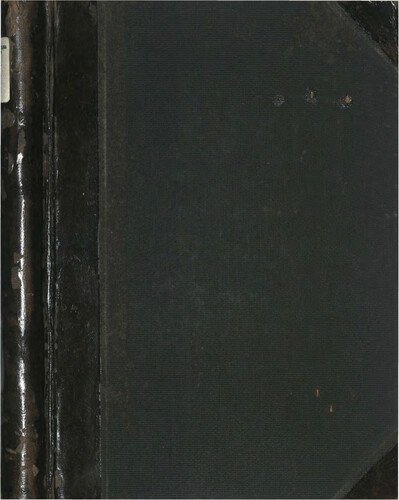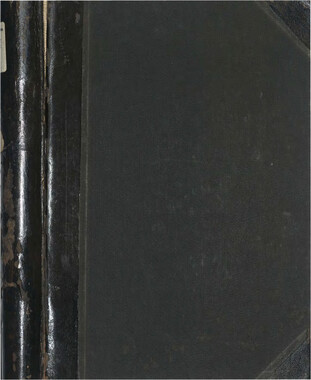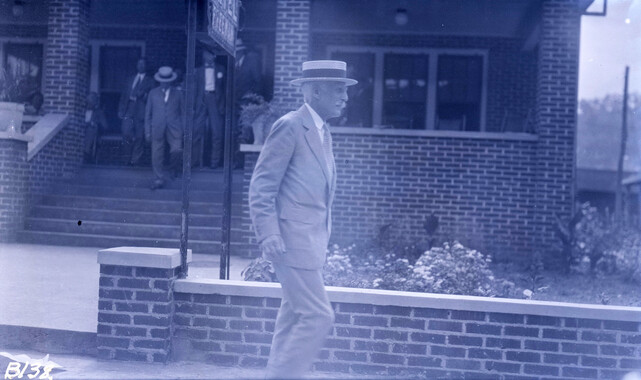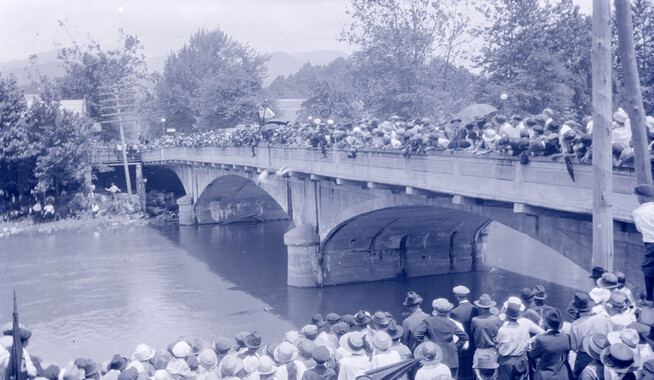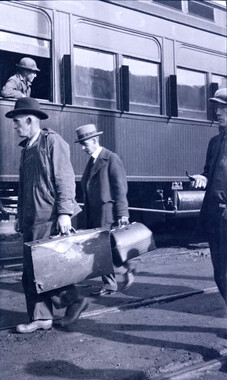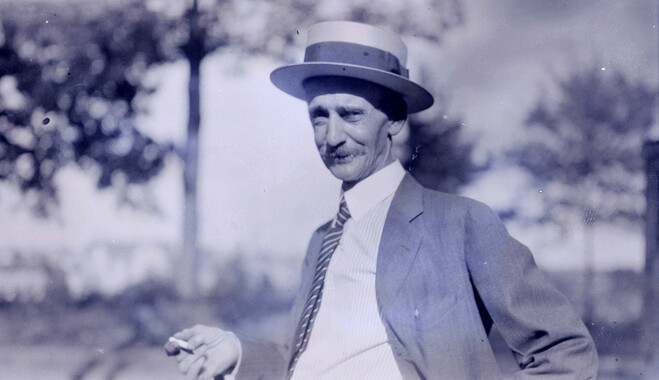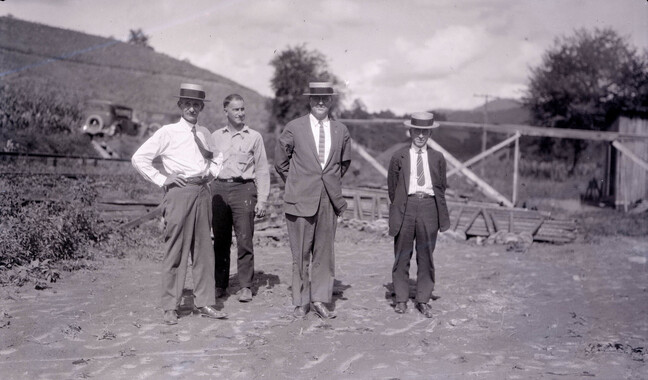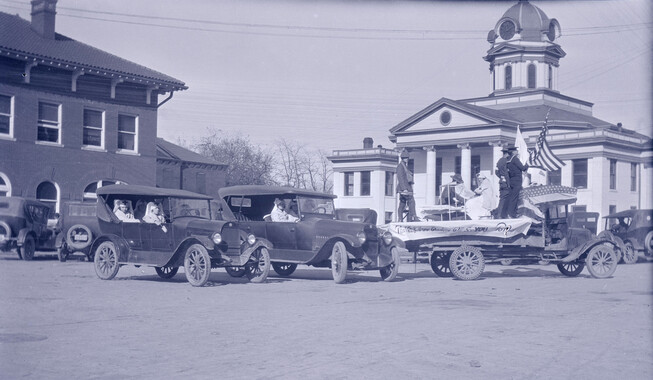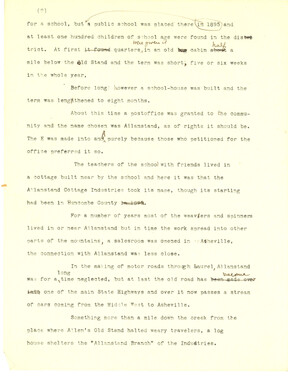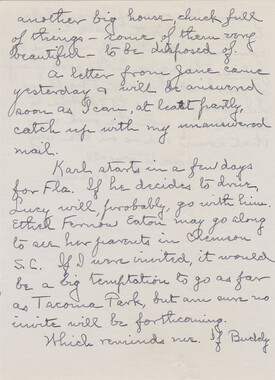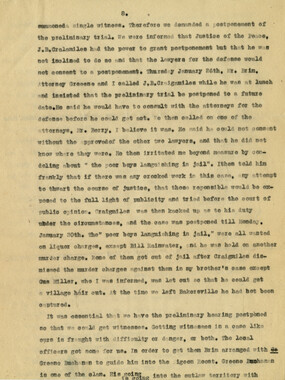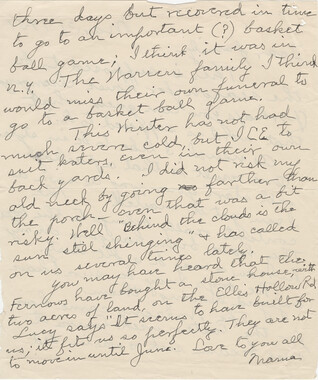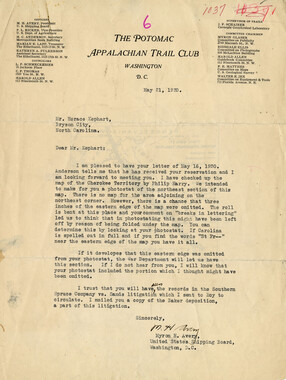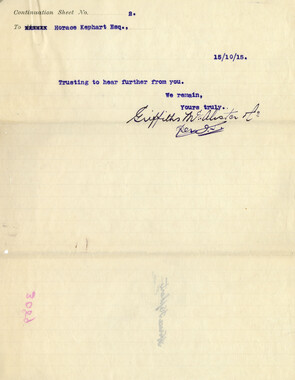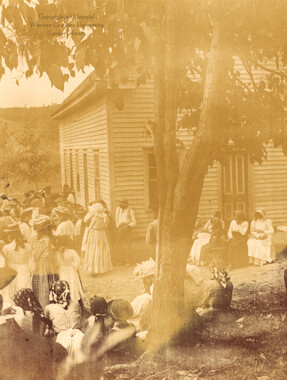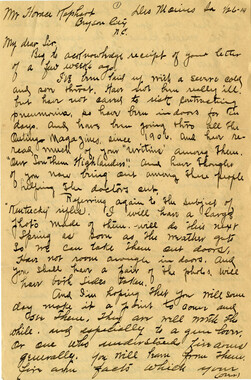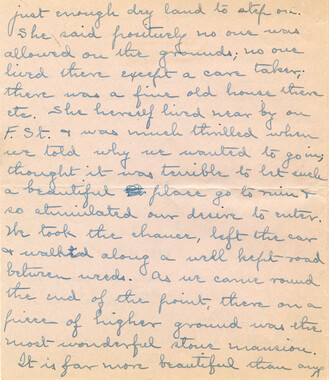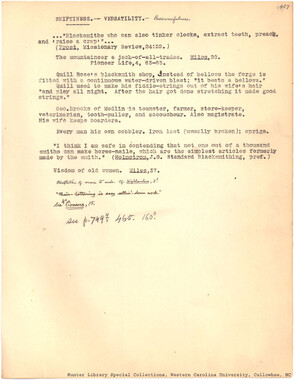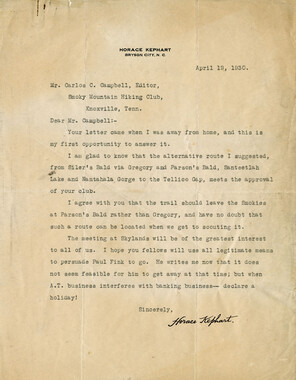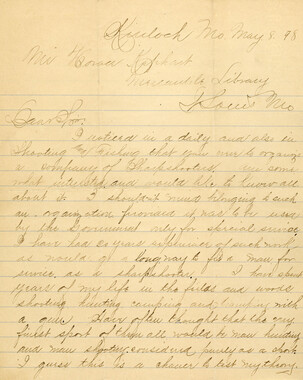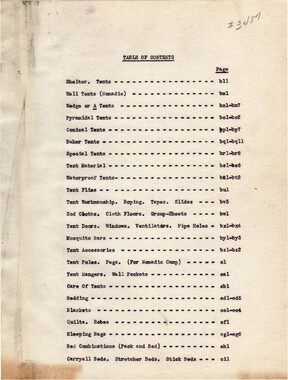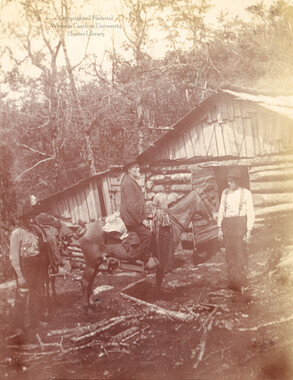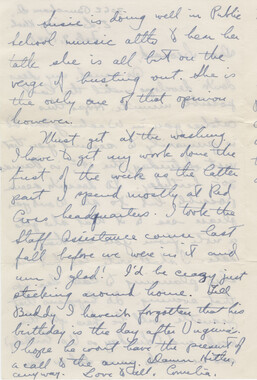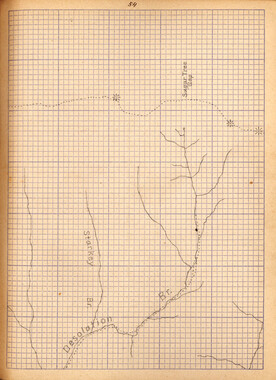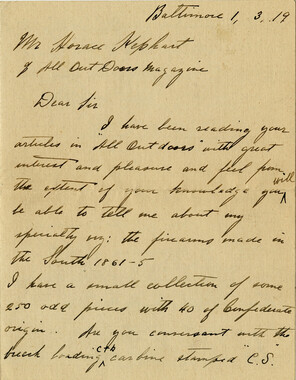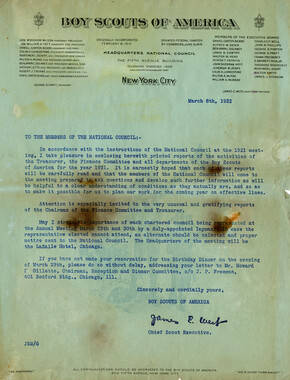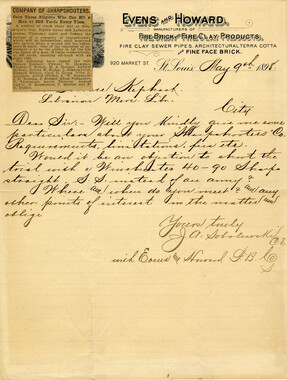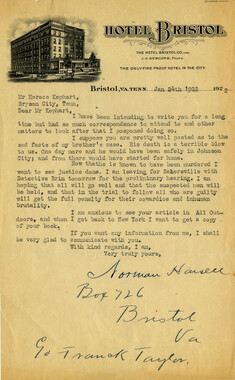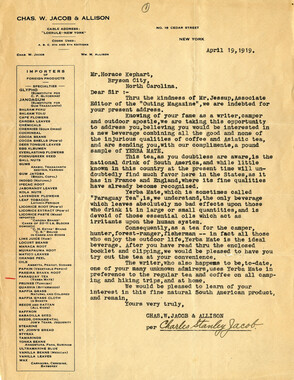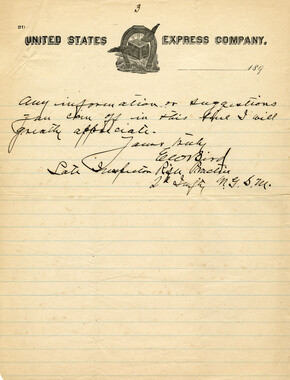Western Carolina University (20)
View all
- Canton Champion Fibre Company (2308)
- Cherokee Traditions (293)
- Civil War in Southern Appalachia (165)
- Craft Revival (1942)
- Great Smoky Mountains - A Park for America (2683)
- Highlights from Western Carolina University (430)
- Horace Kephart (941)
- Journeys Through Jackson (154)
- LGBTQIA+ Archive of Jackson County (15)
- Oral Histories of Western North Carolina (314)
- Picturing Appalachia (6679)
- Stories of Mountain Folk (413)
- Travel Western North Carolina (160)
- Western Carolina University Fine Art Museum Vitreograph Collection (129)
- Western Carolina University Herbarium (92)
- Western Carolina University: Making Memories (708)
- Western Carolina University Publications (2283)
- Western Carolina University Restricted Electronic Theses and Dissertations (146)
- Western North Carolina Regional Maps (71)
- World War II in Southern Appalachia (131)
University of North Carolina Asheville (6)
View all
- Kephart, Calvin, 1883-1969 (15)
- Kephart, Horace, 1862-1931 (290)
- Kephart, Laura, 1862-1954 (39)
- Masa, George, 1881-1933 (1)
- Thompson, James Edward, 1880-1976 (1)
- Weaver, Zebulon, 1872-1948 (3)
- Allanstand Cottage Industries (0)
- Appalachian National Park Association (0)
- Bennett, Kelly, 1890-1974 (0)
- Berry, Walter (0)
- Brasstown Carvers (0)
- Cain, Doreyl Ammons (0)
- Carver, George Washington, 1864?-1943 (0)
- Cathey, Joseph, 1803-1874 (0)
- Champion Fibre Company (0)
- Champion Paper and Fibre Company (0)
- Cherokee Indian Fair Association (0)
- Cherokee Language Program (0)
- Crittenden, Lorraine (0)
- Crowe, Amanda (0)
- Edmonston, Thomas Benton, 1842-1907 (0)
- Ensley, A. L. (Abraham Lincoln), 1865-1948 (0)
- Fromer, Irving Rhodes, 1913-1994 (0)
- George Butz (BFS 1907) (0)
- Goodrich, Frances Louisa (0)
- Grant, George Alexander, 1891-1964 (0)
- Heard, Marian Gladys (0)
- Laney, Gideon Thomas, 1889-1976 (0)
- McElhinney, William Julian, 1896-1953 (0)
- Niggli, Josephina, 1910-1983 (0)
- North Carolina Park Commission (0)
- Osborne, Kezia Stradley (0)
- Owens, Samuel Robert, 1918-1995 (0)
- Penland Weavers and Potters (0)
- Rhodes, Judy (0)
- Roberts, Vivienne (0)
- Roth, Albert, 1890-1974 (0)
- Schenck, Carl Alwin, 1868-1955 (0)
- Sherrill's Photography Studio (0)
- Smith, Edward Clark (0)
- Southern Highland Handicraft Guild (0)
- Southern Highlanders, Inc. (0)
- Stalcup, Jesse Bryson (0)
- Stearns, I. K. (0)
- United States. Indian Arts and Crafts Board (0)
- USFS (0)
- Vance, Zebulon Baird, 1830-1894 (0)
- Western Carolina College (0)
- Western Carolina Teachers College (0)
- Western Carolina University (0)
- Western Carolina University. Mountain Heritage Center (0)
- Whitman, Walt, 1819-1892 (0)
- Wilburn, Hiram Coleman, 1880-1967 (0)
- Williams, Isadora (0)
- 1880s (10)
- 1890s (29)
- 1900s (8)
- 1910s (138)
- 1920s (219)
- 1930s (33)
- 1940s (35)
- 1950s (15)
- 1600s (0)
- 1700s (0)
- 1800s (0)
- 1810s (0)
- 1820s (0)
- 1830s (0)
- 1840s (0)
- 1850s (0)
- 1860s (0)
- 1870s (0)
- 1960s (0)
- 1970s (0)
- 1980s (0)
- 1990s (0)
- 2000s (0)
- 2010s (0)
- 2020s (0)
- Appalachian Region, Southern (43)
- Blount County (Tenn.) (1)
- Buncombe County (N.C.) (5)
- Henderson County (N.C.) (1)
- Jackson County (N.C.) (6)
- Knox County (Tenn.) (2)
- Knoxville (Tenn.) (1)
- Macon County (N.C.) (1)
- Mitchell County (N.C.) (2)
- Qualla Boundary (1)
- Swain County (N.C.) (88)
- Asheville (N.C.) (0)
- Avery County (N.C.) (0)
- Cherokee County (N.C.) (0)
- Clay County (N.C.) (0)
- Graham County (N.C.) (0)
- Great Smoky Mountains National Park (N.C. and Tenn.) (0)
- Haywood County (N.C.) (0)
- Lake Santeetlah (N.C.) (0)
- Madison County (N.C.) (0)
- McDowell County (N.C.) (0)
- Polk County (N.C.) (0)
- Rutherford County (N.C.) (0)
- Transylvania County (N.C.) (0)
- Watauga County (N.C.) (0)
- Waynesville (N.C.) (0)
- Yancey County (N.C.) (0)
- Artifacts (object Genre) (85)
- Clippings (information Artifacts) (15)
- Envelopes (37)
- Glass Plate Negatives (5)
- Letters (correspondence) (366)
- Manuscripts (documents) (273)
- Maps (documents) (3)
- Memorandums (1)
- Photographs (195)
- Portraits (1)
- Postcards (5)
- Publications (documents) (6)
- Aerial Photographs (0)
- Aerial Views (0)
- Albums (books) (0)
- Articles (0)
- Biography (general Genre) (0)
- Cards (information Artifacts) (0)
- Crafts (art Genres) (0)
- Depictions (visual Works) (0)
- Design Drawings (0)
- Drawings (visual Works) (0)
- Facsimiles (reproductions) (0)
- Fiction (general Genre) (0)
- Financial Records (0)
- Fliers (printed Matter) (0)
- Guidebooks (0)
- Internegatives (0)
- Interviews (0)
- Land Surveys (0)
- Minutes (administrative Records) (0)
- Negatives (photographs) (0)
- Newsletters (0)
- Newspapers (0)
- Occupation Currency (0)
- Paintings (visual Works) (0)
- Pen And Ink Drawings (0)
- Periodicals (0)
- Personal Narratives (0)
- Plans (maps) (0)
- Poetry (0)
- Programs (documents) (0)
- Questionnaires (0)
- Scrapbooks (0)
- Sheet Music (0)
- Slides (photographs) (0)
- Sound Recordings (0)
- Specimens (0)
- Speeches (documents) (0)
- Text Messages (0)
- Tintypes (photographs) (0)
- Transcripts (0)
- Video Recordings (physical Artifacts) (0)
- Vitreographs (0)
- Horace Kephart Collection (729)
- A.L. Ensley Collection (0)
- Appalachian Industrial School Records (0)
- Appalachian National Park Association Records (0)
- Axley-Meroney Collection (0)
- Bayard Wootten Photograph Collection (0)
- Bethel Rural Community Organization Collection (0)
- Blumer Collection (0)
- C.W. Slagle Collection (0)
- Canton Area Historical Museum (0)
- Carlos C. Campbell Collection (0)
- Cataloochee History Project (0)
- Cherokee Studies Collection (0)
- Daisy Dame Photograph Album (0)
- Daniel Boone VI Collection (0)
- Doris Ulmann Photograph Collection (0)
- Elizabeth H. Lasley Collection (0)
- Elizabeth Woolworth Szold Fleharty Collection (0)
- Frank Fry Collection (0)
- George Masa Collection (0)
- Gideon Laney Collection (0)
- Hazel Scarborough Collection (0)
- Hiram C. Wilburn Papers (0)
- Historic Photographs Collection (0)
- Humbard Collection (0)
- Hunter and Weaver Families Collection (0)
- I. D. Blumenthal Collection (0)
- Isadora Williams Collection (0)
- Jesse Bryson Stalcup Collection (0)
- Jim Thompson Collection (0)
- John B. Battle Collection (0)
- John C. Campbell Folk School Records (0)
- John Parris Collection (0)
- Judaculla Rock project (0)
- Kelly Bennett Collection (0)
- Love Family Papers (0)
- Major Wiley Parris Civil War Letters (0)
- Map Collection (0)
- McFee-Misemer Civil War Letters (0)
- Mountain Heritage Center Collection (0)
- Norburn - Robertson - Thomson Families Collection (0)
- Pauline Hood Collection (0)
- Pre-Guild Collection (0)
- Qualla Arts and Crafts Mutual Collection (0)
- R.A. Romanes Collection (0)
- Rosser H. Taylor Collection (0)
- Samuel Robert Owens Collection (0)
- Sara Madison Collection (0)
- Sherrill Studio Photo Collection (0)
- Smoky Mountains Hiking Club Collection (0)
- Stories of Mountain Folk - Radio Programs (0)
- The Reporter, Western Carolina University (0)
- Venoy and Elizabeth Reed Collection (0)
- WCU Gender and Sexuality Oral History Project (0)
- WCU Mountain Heritage Center Oral Histories (0)
- WCU Oral History Collection - Mountain People, Mountain Lives (0)
- WCU Students Newspapers Collection (0)
- Western North Carolina Tomorrow Black Oral History Project (0)
- William Williams Stringfield Collection (0)
- Zebulon Weaver Collection (0)
- Appalachian Trail (6)
- Forest conservation (2)
- Forests and forestry (5)
- Great Smoky Mountains National Park (N.C. and Tenn.) (18)
- Hunting (7)
- Maps (2)
- Mines and mineral resources (3)
- Postcards (1)
- World War, 1939-1945 (4)
- African Americans (0)
- Artisans (0)
- Cherokee art (0)
- Cherokee artists -- North Carolina (0)
- Cherokee language (0)
- Cherokee pottery (0)
- Cherokee women (0)
- Church buildings (0)
- Civilian Conservation Corps (U.S.) (0)
- College student newspapers and periodicals (0)
- Dams (0)
- Dance (0)
- Education (0)
- Floods (0)
- Folk music (0)
- Forced removal, 1813-1903 (0)
- Gender nonconformity (0)
- Landscape photography (0)
- Logging (0)
- North Carolina -- Maps (0)
- Paper industry (0)
- Pottery (0)
- Railroad trains (0)
- Rural electrification -- North Carolina, Western (0)
- School integration -- Southern States (0)
- Segregation -- North Carolina, Western (0)
- Slavery (0)
- Sports (0)
- Storytelling (0)
- Waterfalls -- Great Smoky Mountains (N.C. and Tenn.) (0)
- Weaving -- Appalachian Region, Southern (0)
- Wood-carving -- Appalachian Region, Southern (0)
- StillImage (296)
- Text (647)
- MovingImage (0)
- Sound (0)
Horace Kephart Journal 21
-
Horace Kephart (1862-1931) was a noted naturalist, woodsman, journalist, and author. In 1904, he left St. Louis and permanently moved to western North Carolina. Living and working in a cabin on Hazel Creek in Swain County, Kephart began to document life in the Great Smoky Mountains. He created 27 journals in which he made copious notes on a variety of topics. Journal 21 (previously known as Journal XI) includes information on civilization and town life. Click the link in the Related Materials field to view a table of contents for this journal.
-
-
-'d- Head of Boatmen's Union Tells Railroad Managers $2,221 a Year Is the Minimum. BUDGET FOR FAMILY OF FIVE Table Allows Harbor Workers $625 for Food and $313 for Clothing. COMPARED TO WAQE SCALES 1ft Some Caaea Demand• Are Below Eatlmate of Total of Necea· aary Expenditure. F. Paul Vaccarclll, bU41neaa agent of the Harbor Boatmen's Union, yeater<tay IIUbmltt d to H. I,. Joyc , Ch lrman ot the Aeeodated Marin<' l>t•partmcnt of the Asso<'lat <I Rallroa<l funac<'l1!, fii'UrM 1howlnc the av r gc coRt of living of a harbor worker's family or tlve-man, woman, two bo)B nnd one slrl. The tot I for fnorl, clothing, n•nt, fuel and light 1\nd undrl a nmount11 tn 2,221, •nd th wac s demanded for tho workers rancc from ,1,800 a year to 12,400. The lnformatlnn le snhmltt< <I to .lr. Joyc In accordanct• with " requeet he made of Mr. Vllcc.arelll at u. conferenc on II'hursday. Thll harbor workcrR Include deckhands, pllerl!l, cooks, fla.tmen, ltrtdl'eman, boat dlapat<'hera, brldae- . ························· tHnv ••.•••••••••••••••••••••••••• 1::\to 1(\111'1 •••• 111 •••••••••••••••••••••• .Aprona ····~·········· ••·••·oO•oo 1 ml1rf'lla • , . o o o• o•••o• •o• o .. O. o•o. oo• lnchl ntlllB (\OliO, pln.s, bru•h•t, handkerchl•t, !ura, ltc ••••.•••.• , Total ...... , ..................... . Rn)· 13 an11 o.-.•r. Top rcult and IIIW ater. o o •• o., o o o •••• !oo;ult and trous.cJ'II. o•· o o •• o. o. o• o•••o• ~hot's a rut rrpatr. o •••••• o o •••••••••• 1 ndftrwtar •• o • , •• o ,. o ••••••• o. o., o. Nt~ht aarnu utn .••••••• o. o •••••••••• lfat • o. 0 ............... 1 o .......... .. llhlrta ............................. . ftto<:kln&• and floCks .••. o •••••• o •••• 'l'leo, handkerehlef~. &;c ............. . Total, ••••••••••••..••.•••• 1 •••••• Cllrl II to to. 1'01" r1na.t and 1w at,r •.........••... o Jtuhher~S •.•..•••..•.••• , .••••••• 1., o. 8hoee And rernlr . , • .... , .. , •. • o. · • l'n1! rwahttft an1\ t nrtf'rR ......... .. Drf'AII{Ic• t •·hool nnt.l heat •••••• o. 1. l'•tttro!\1 10r I> loom ra) .... , .... , .. 1'nrl.rcloth•• .................... , .. . :" llht l&rmonta ................... , ltat"' ·•········•••o••·······•········ Htn<'klnRS .... •, • · · · • "• · · • · • •" • .. • • Rib bono and handk•n·hlofo .•.•..•. ,, Umbrella .......................... . T~tal .......................... .. Uoy 4 to 7. Top C"P.l and •w••t•r .......... , .. , !:'ho~e and rf'pn lr • . • • 1 o •• o ••••••••• 11.uhheor8 , •••• o •••••••••• o ••• o o •• o •••• •uttl!' thf"'at work. overnlle) ••• o ••• o •• lfnderv. ar •o••o••l•··· ••• 1·•·· ' 0'' l"'n«t@lrwabb and l!fR.ttera •• •o• ...... . Xl~ht gRrnt~nt.s ..•• , .. o •••• o• ••••• llata anrl rap A •••••• o ••••••• o ••• , •• alet11 and blou,.f>s ..•. o •••• o, .... o •• Mitten•. Ilea, handkerchiefs ••••• ,,,,. atoio~r.~· . : : : : : : : : :: : : : :: :: : : :::::: :: $M7.00 $;:10 11.00 1tl.(M) 4.00 u.o :;,G41 .:.r•o :.:.1\0 I.C.O G7.00 s«.on 1 r\,1 l!"i.nn 1.1\0 ti.llO 1.~·0 :.·oo Z:no J.l)(l l.IHl S37.~0 f4 r,o 15.00 J.r,n ll.flO l.GO I• n e rnc•t attf'mpl to r t a qunr de I ,and 1 hope that ) ou will gr that the)' ILr ntltll'<l to that. By a 1qua.re d~ul I mean a d• nt w c , nnd th op· portnnlty ot llvlnc a. d nt IIC accord· Inc to the tlmeH. ThP. high ~oat of Uv· lnr nn high r ·nta IH n ,. 8 I tat s thle d mand, nn<i lUI Curth r prone l am In· loelng a. copy nC a minimum hudl' t for eubslaten~<l nc<'P.SlUtr)' tor a Camlly oC five. which I~ th< veral'" worktntrman's tamlly. Thla budg t 18 n re ult oC studl s of IIOtl a tu I hudgets taken In and around N w York." Th• new wo.g H<'altl prc11~ntr.d h>' the wori<PrR to be~ome eCft•ctlvc l!ar('h 1, In t, ColloWII; !'er Month, Per Y•ar. Ji'lrtt Mckhand .............. ,180 $2,100 He(·ourt dcckha.ntl .•. o •••••••• !7:'i ::!.100 Oll.,ra ....... ., ... , ..... , ., • 1HO lt, \(10 l'lren1en .................... 1'7:1 =.!0 100 Cool<a OOI••o•o•••••••••••~·· li:\ 2,100 F'loattnf'n 0 •••••••••• I •• ,, ••• HIO ~.tHO llrldp:em•n .. . ............... 1711 2,100 lloat dlapatchera .... , , , , , , . , 2tKI 2,400 Hrhl&Nnaatf!rR •...•• I ••• I ••• 200 2,400 J<\ a-ryboat porters •••••• o •••• 11\0 J, )0 'l'owernJP.n 0 •••••••• o ••••• o •• J 0 :.:,J60 " You will not thllt th d m&ndl," ~aid Mr. Vaccarclll, "ev n thouerh ,.,. nte<l In Cui, would not, In eom In· tanc~.11. equal the mlnlmml bud.-et, which Is $2,:!:!1, and 00 I" r cent. ot youl<l mploy a will have tQ exlet on 1• ... " r Ish to call l·our a.ttt~nUon C rt that thf! boa diiD&tch~r wcii'IIMIIMI at Hny Hl<lll<', cmplo~·r•l by l.tOlnnd Halln>lltl, h11.s hnd to d 1,ra twr w '('k, unc.l hn\'o fnlle<l to b1·ln10 rt . hon t rlll!pat<'hrra, lUI ll'nll o..• t•t m· ploy• "· of th< ,. llroad. have rnjo)·ed th da) oft every w l'k. \V hop that In yonr ded ton you wlll not forgP.t to nwntlon the fa~t that bon.t <llspat<'h<:'l'ft, n~ w~l las oth r cmt>loyoe, will be en· Utlctl tn 11. day off. " I al•o requf'st thnt ou taktl Into <'on lrleratlnn the fact that common lithorcr.e today are pull! a minimum of $~1.:10 p .. r day Cnr dght h work, ll'lth <lonblc time for all wor of lght hours and all r<>r·norn""'" holidays and Sundays, not en u«tt taborere to mand. Taking tha.t Into eo•n•ldf!raltlnn. a.m you will 8 THE NEW ~YORK TIMES MAGAZINE, MARCH 16. 1924 • IS CIVILIZATION WORTH HAVING? Man Has Wrought Miracles of Mechanic Progress. but What Has He Really Gained? "And this man calls civilizatioii." H11 WESLEY 0. HOWARD 1 lu H rltn· 1 a J" liCe of the two of all tlu ages the dtseov<'ry ot fll' I ~"'"' 111c Court of. 'cu· \'mi.: Then man progr s t. <:arne M . • ongtn lly ~ M not a h<• now I·. A hun<ln>tl thou" mt m· mor<' y rs ago, "hen ht• fin;t apJW!\TO<l out of <·11ve>< nntl li\t <1m huts; then In houst s. Hl' jtro~-:r~. ·s•·tl from 1\ hl'~st tn 11 l\':lgt•; from a !OU.vagc to upon the ••tHth. man "a" cllft't-n•nt in al!llost c·Vl r r~:;p<·et in looks. 111 slmpe, In habtts, In Slli'N'h, 111 pun>O><<. At !1rt<t hi.' was n ar . hm·t>~ll dl.'nlz••n of the fort•st, t:r P· In and crouching and climbing and hllllll and hunting- ancl fighting an<l sll'eplng in the trl'ell. Then, nfter 1gcs, lw caul • uo·o\'n upon thl' ground to lin. HI.' crawled Into cavl.'s for ><helter. He h g11n to tl•ar nnd crunch ancl eat flc!lh, !Uld stand I trect. .\11 oth<'r animals and living, nN ping thmg>~ whl<'h h<' cou.ld 0\'{'TPOWI'I' Wl're his prey; l'l\tl'l')lll· Iars, toadH, fiHh, >lllakeR, egg~. grtls>'<hopp t·s, bir·ds, dogs, llznrdH· and olht•r mt·n. 'enturlN< nnd nge>l roliNl t. .. hut he wa>< only a b a;,;t, like other h••tu<t::~-~enl<unl, A"luttonous, I pn•<laelous, f<•rO<'iou. ·, murdemus. 11 e prowll'll and stolt\ tllld fought n nd torturecl and killl•d, nnd wa>< ktlled. H•• ktww nothing uhout fin•. MIIIPnnlunm pa><.-.('(1 while prhnonhal rnnn >~hi .,.,. cl In tht• damp eavern>~ uf mountain><. At lat>t lightning fla:<h!'<l down into the fot·t•st and iKnlted the dry lt!tn-es. Mnn and his l·ompanl<>n , the unlhropold.·, :<tood nrouncl the bhtzt• and wondH d. You •·ould not ha' c told the nwn from the upco; :1 >~ tht•y H\lll:tlt<"d around. Th y tvul·hed the fire and ft'lt ibl hill and it.'l wtu·mth. Hut. the fire wt•nt out, .1nd long ccnturiNI elap~ed hdor another group of up " and m••n warmed th mH lves befon• an· other fir . 'l'hc a •cond fire died out 11::< th first OIW did, >tnd ccnturle:-~ , 1gain cla.pscd. Other fires came and 1Ued out. Neither tho apell not· ~he men Knew how to preserve the fll'C. It died aH animals died. At lust anuther fir<' came. The apes, and most or the men, looked at It awhile and ~Tinned and then ran away and for,; ot it and chatterrd and pulled down • plantain trees for fruit and hunted j for bugs for dessert. But some of the men stood and thought; stood and looked at the dying fire and thought. Feeble Rparks of thought, they were, hardly thoughts at alL But at last one man. looking just like an ape, hut not at' ape. thought a wonderful thought: be thought that maybe the fire coulll be presencd by putting other drr sticks on the dying nnbers. He tri~d it. It was ~ suct- e!IS. That WHR the greatest mven-harhat hu1; fl'om n harl>at·mn to a huntet·; from a hunter to a hl'rdflmnn; from a lH•nlsman to a till r of th< ;,;oil. fl<' lam <1 wolvt•S and tn>Hl<' th~m into dogN, 111111 th1·y 1.J • hi. l·ompanions HI' e::wturc•d nd mad<' them and l'ith• ntl roads. struch•d bridges und Pl' dt>d h·nwles and won;htp •tl gods- many god:.. Hf' wrote !<Ongs and made love and made war and slaug·ht red hill fellow- man. He mvaged and rHJH'd nml burn1 t.1 nnd pillaged and destroyl'tl. He di&·ovt n'll thA <'trculntion of tlw blood and the nrt of Jlrintlng·, and lw diR<·ovt'red gunpowder ancl ~<tt•am and !'lt•ctril'it) . Now Ill' talkH thi'Ough tiH• :Ill' thou><and~ or mii<'R nway m :tudihl<'. certain tmuntls and In ;,;pukl'n word.;. HI' ha..'l !lug tumwhl UJHl<'r t hP tall!'st mountain::~ ancl built highway~ un ~ cler th1• de.•pest l'ivl'r><. li<' has drainNI s ·amp>< and made them tnto ferltlc• flt'II)H, a ncl hHs Wl~lerNlj the dest-t·ts until UH'Y smill' like gllt'· j dc•ns. His l'llllroad:.< spu u the <·ontlnent>< and his drl'tulnoug-ht:; Nlm· pa><s th<' sea..~. Jlls shl(l~ plunge clown Into unl•xplorl'!l <'ttv<•rn>~ of the O<"ean, dePpet· than whalt•H dnt·o to di\1'; and Ius wings HC~Illl' the pt'aks or 1 h!' Anlll'!l ancl tht• t ut·rl'ts of the Alps, when• ••aglr>~ grow dtZZY an•l hP>~Ilate and fall. ThtR i:< f'lvlllzntion! Thott Is what man <'rllls his nccomllhshmenl!' l; his progr ss from a. t>e:u1t-almo"t to a god. He haR surpasaed thl' ape, his ancient nl'ighbor. Hir-~ cousins, tht- <·himpo.nzre and th•• gorilla· and the omng-utung, have stood still, intellel'luo.lly, whil(' the mind of man has developed-developed m11rvelously. He surpasses all the beasts of the earth and the fishes of the sea and the bit·ds of the air. There are no limits to his achievements. His vision goes even into the heavens. He has made gla.-;:<eR that pull the stars down clos!l to his eyes. He measur·es the mountains on the moon and pr·owls down Into its deepest caverns. He numbers and names Its cmtet·s and knows its dead oceans and deset·ts. Mars has become his neighbor. He has marked and measured lt11 canals and know~· its seaj,l()ns. He believes he has dlscovei ·ed the movements of its lnhahitant:!. The firmamE'nts he has mapped and h<' Jt,,s tnath• time-tables !or the l'omrttl. n<l tht he l'aliR <·tvtli7. tlon. Hr ha:-~ lnvent••d I ttlrs and laws nn!l htt'ratur . And h hu ll velopcd ;;chools ot' philosophy, tht' pun>o~o;e of thl'se ~<chools hl'ing to tll:-~eov r th<' 01 igin and d• tin) of tht• univers ~tnd man- and l'nt•h sehool has fal\('d. ThNI!' 1< houl;i Wl't'<' establishNI b~ thl' profoundest thlnket':l'-- ZI.'no, 8ocrat M, !'Jato, Aristotle, t•:plcm·us, gpictetu . H•• has e. tablished creed,; and adopted superstitions and rounded 1'1'· llgion"- c>:wh disagreeing with t hi' ot h<'r. And <·;tl'h religion ha:; hall a prophet-7-orott,.t~>r, Buddha, Confn• ·•u , Chl'ist, . tohammed. And this man cni!H eivlliz<ttlon. Man hns built t•itiNI; we speak ot tlwm now a,. ancient citles-As.'lur, ,\J 1•mJlhls, Ht•liopolls, Thc>bes, Ninev< h, Babylon, Troy, Carthage: dtles tlull haVl' bt•en et ropollses of the world Citlf'>i wlu ·h hav<• come and g·o1w and dl<'d and ar<" buriPtl Itt ohllvion, rubbish and mold. 1 •roucl eitll'K tht-} wN·e, with templt•s and turn'!(s and clung<'OBH and ntllcs. Cltlo.~ Jik<' our moder ·n l'itie~<, with opul('nce and nloundancc• and IIOVCI'IY and ~;qua lor: ltif'll with JlH\' d stn·l't s and pala tial hume.'< and hanginA' gnrdl'n:~; tltit'H with crowdl'd attics and fllthy nllcyR and damp hiiHPnwnts; c•ltlt>s whcrl' the t·kh ;anllrd and rl.'vi'INI and lhl• poot' groam•cl nnd flnff<•t·cd: citil's of son·c•n•rs and a><trologPrs and alch!' mh;t~o; and hashlsh-eal<•rs; clti !I of gamblers and revl'lcrK nnd extortion· r•·s and ,.windl!'rR; dtles partly above the ground - proud, dch, ~;tatt>ly, t~:~.nltury, dean,, well-order·ed, wellfed, eomfortnble- l'at·tly helow tht: ground; lowly, ignomimou~<, fill h~, nnht>althy, dpprnved, l' r i m I n a 1, starved, suffering, mls •rable, hot>~) I(~S! And mfln, in that ag'l', call\•d it dvilizu lion. And man has also built modern cities: New York, London, Chicago. Paris, Berlin, VIenna, Buenos Air<'S -vast vortt:xes of civilization- tht: 1 humnn atoms moving, whirling, l~ur-I rylug, coming, going. dlsappearmg. He has erect d "~kysct'llpers" reaching up till they touch the clouds, I 700 feet into t)'te air- higher than hawks or eagles pereh; and there human beings live and breathe and , breed. And under these cities and J "skysc'rapers" he has dug "subways"- great networks of subterranean highways; p a v e d, arched, lighted, spacious, "inding, ill-smelling. Swarms of human ereatures, like ants, rush down into these subterranean pas:<ages and IU'I' hustled and whirled to their destination. in tht>ll' lllU<lt>rn elti a, bntlltl, opt n houicvanls; ht·ltl· b Jtt.ful, ~tnlph• thorough. , aml th<') also build dark dt• ll tr<' t ·• lik • mountam •·un- •· throu~h ~hkh hunuut tor·te }lOUt a: floo<IM plun~;e throutth 8 An•l they eoostr-ut'l great kll ami <·n·l't :~tutu an<l hnv~ ogit' Ll gnnl n nn<l mainlltln hose; nnd thP}' 1\RV(' damp, t•t'OW!}Pd m nt>< nntl gloom) nttrt•s and uaanitnry yards 11nd poorhoust•ll and JQadbou 1< and twnlt!.'ntlarics. In tlleeP bli <'Ill ntK and attics lllthillt< ar . bonJ who ni:'Vt' l ,;N• th<• hlut• sk)' or lll'lell th~ frt•Kh air, nnd moth!'r.s die who nPvcr toU<·hPd th1• grl:'l:'n fttldll or walkNl in tlw ~lll'nt foreats. ft4 t'bl Is civtli7A'ltion. 1 The dev<•lopnu•nl of .man has alao produred th<· untler·world; th<' spawn of the fa..tory "Y"ll'm; tltl' l!pew of the communlt) : tht> Plll'I\Sitl'll of >~0 - clot:y. Thi• nntkrworld, whl:'rt> ooys are taught to he thieves and girl,; train~ to ht• proslit utes ; th•• lam! of elope rit•ntls, tl<'gl'n<'rllte:<, hagll, barlotH, plckpotk<•IK, ttlmp . pau · pe111! -tho•w who prowl In ttw !lark aft4 fiit lllu• t;pt•dt'CI! in the gray of the monung. Those who ~h'<'P th thi•lr (')otlws on in hunkK of rap, eat<'n wllh vNrnln. stupefl,•d with 11tt'nd1 ; llvm~ In :.quulor, want, llftvatlou, wrPtchNlll<'Hs, filth and un•l"rworld; the wretch , the low I)", thP mis rtlble, thll !'rlmlnal, th de • peoral • t pt • Th y f<wgd tho viUit, nocturnal l"t:' t.'t'IISilS of human abode Wh I' • 11111! gnaw and •·atl! howl and veJ'fllln t-rt't'll nd ,Ji IKe 11talka - forget tho"' ngtons ' of th1• wr!'tt'h d when they applaud man's t.·t.•ompllsh· mentl<. And y t we mu t group 1\ all togt>thPr whPn we speak or t.•tvtl· lzatlon. tor it 1s tbt' ll!CI:'I'<'gat•·. nut th<' b<'Ht, whkh constltut 11 dvtllza. tlon. And som<•times I wonder what th< giant Inhabitant~ of Jupiter lillY wlu.>n they look through thl'lr colossal t<'INI!'OI'I:'.'< down Utton this llttl•• v;lobl' . Maylll:' thi:'Y are amused at ur pigmy 1•fforts and mldg<'t cltl<'lt • nnd curiO!Js habits, 11.11 we an• amuH<'d 111 the hallitll and l'ltll'.ll of antH. H thP Inhabitants or th•· othet· plant>ts, tht.• mt'll of Mar·~< and th<' giantR of Jupiter. havt• in· deed dt•velopoo telcHCOPelt powPrful enough ,.o that they ean look rlown upon us, they must lw most amust.-d at our "art of war." tJndoulltlodly th<' phlnt'tni"Y astronomers wf'rn puwf'd to know what om· KI'AAt World War was all about. Intlt• d, t hi\Y must · havt• l~t>n fo•· no man can tl'll. l'l'rbapll the:y reg1u'ded It as n gr!.'at international game or pa11tlnw. But th<' whol w11r game was, H'rY llkl.'ly, puzzling tn tht' phtnetary ollscrv<'l'>l. Th1•y MUW mt•n fr·om all part>~ of tht> civillzl'tl world (no barbarian>< did It> ru~h to on<' little strip of land and ditt dt•ep, wldl'. mud<lr dlt<·hl's In th<' group and go down Into those dltchl's to live, live for yl'ar·s .. Th~•· ml'n ood left com· rortahle hom~'" and plea!!l.lnt surroundings, left wlveM an~ parent!• and children, to go nnd wad<• and weltN· and wallow in the slime and slop and >~lush of thcs dltche>~. Ant\ ther • werl.' lateral dltchel:! and connecting ditchl'll and grE-at damp. drippin~ underground cavern~>. all Inhabited by these hordea of men. living thus In diM<'omfot·t an~ flit!~. Disease attacked them. tiel' b1l then· skins. rats romped ov~r their bodies as they slept, and ate thl'lr faceH when they were dead--and while they were dying; and yet they stayed. And the . planetary mind, perhaps, could not comprehend lt. And the planetarhlns, looking through their great telei!Cope.'l. observed that tbeee men in the ditches occasionally put queer looking ma'l~~ on their faceR. For a long time th•~ muRt have J)(!rplexed the planetarians until at last they were abll' to di<~Cover, perhap~. that the othet· men engaged in the game werf' prl'cipltatlng poisonous gase:< down tntr. tt <' trench 11. Kll •lid l'lunc, and ml •od With tb mud . • tnd lived In the 11llm• , and lltay ln th tent.•h; • wbk'b uttocat and burnt and killed and <X»nv rted >«>und. h althy :young men rnto drl • t•hnK ldiOtll and ntVIntr n.lacar nd thtl ml.'n of Marti, ma:ybe, could not comt>rehend thiH, nor the pnta ''' Jnpltl'r. And the alrsbip11 drot•PillK bomb• upon foundling IUiylufl'\1', theaev ntyruur- mlll.' gun hurling h'on mlull Into churehea~; and all the lnnum rHhle devlcea and devilments of war, (>tiDied the people of the pla.Det.; the walltP or war. Its deatructlOD and privation and aacrlf.t.-e ancl cruPity and blood and blasted hopes; lt. wrack and roar; Its terrorw, tort u re11, torments, taxes and trlbulationa~: the t•rlpples and crutchM • the halt, the lame, the diHftgured and ~ht' blind; the widows and ort> hans; the llomba and batteries; tho wr·eckagt' and d~bri11; the bll.terln• hllght nnd awful angulsh-.the bat- \l(•fwl•l at nl11.ht with ltK gluu!tlY • gt'UI'HOntl' grnut>H of (h•ad, and tta grnnntng, writhing human form•: tt 11 ht~ardll'.ss boyH in thP agonies of flt•nth. tortured with thlr11t, •·r:ylng r1w wutt·r. ftJChtlng with rat,., bab· hlin~r in dt•lh·lum or sw" the11rts and motht·t·,. tuo they lay on the blood:Y fl td tangll'd un(l twisted ln snarled m:t:<>i'H of harlll.'d wire looking up at th star" In hntwleHS deHpalr- Ralp· lng! Mtruggllng! dying: And whit' men, seriouH looking mt•n, ll'lll'ned and maturP men (>~tat.-Hmt•n thPY were c11lled) stood up in parllaml.'ntH an•l aRHemblagea on both sidell of tht' battle front and solemnly declared that this hldeoua orgy of murder mu11t contlnul.', as it flld continue, for yea~ontlnue for the good of the buman race: thl! t butchery, thiH brutality, this beastly revel of the mad! And all thiM, vPrY likely, baffied the com· prehemllon of the people of the pi anetA . Hut we call It dvlllzatlon. Is civilization good? 18 it worth while? 111 <·h·IJI.utlon bettl'r than l.Nlr'bar·hml '! TheMe queath>n11 are M tounding. Jo:verybody will anawer "yeH ." But sometimes I am In doubt. The one Hingle purpose of l'i\'lli:&atlon Ia to make man happier: happier than when he W&M a savage. It It faitH 1<hort of that It is a falJure. Dot'>! It make man happier? In paM><in~~: from the top down to the bottom in the IIClll(' of KOCial development tht> nearer to thf' bottom I come the mort> eont ntment I tind. Thf' ordinary buslne&~ man Is happier than the c•aptaln of Industry; the man or modet'S.te meana Ia happier than the muiU-mllllonalre; the obscure town official Is happier than the renowned Ktatesman: the unlettered peall8nt Is happier than the great lund owner-nd the barbarian, I auap('(•t, Ia happier than the peasan~. toiiH. t tll'ent)i , the ago• when the dvllian h'" finlahl'd hiM education and Ia JWit "starting In life." the lllllVRKe ha... lil'o>cl much and enJoyed muc·h. At the age of tweh·e, In the tropi<'ll, natur., prepareK the H&\'&ge girl for marriage: and Hhe obt'YH nature and experlf'nt•eH the r-apturt>K of the young wife. .At thlrtl'en Hht> knowK the Joya of the mother. At ~~eventf'en tht> aavagP boy Is t•ontet~tlng for tht• priz('s of · men. Ht> IK a man. He h1 his own ma><ter. He know" libt>rty. Ht> has l!rver bet>n a priHOner. Th~> fetters of <-onvt>ntlonH have n~>ver Khackled hla limbs. l'erhapK tht> Ra\'1\Kf' gets more out of life than the civilian. He romps and rt>veiK In life and dellght11 In hiM youth while the clvtllnn studies and 1 He rldea the wild pony bareback and battles with tht> buffalo; he fO\'('s In pathleKK, primeval forestH with Htealthy HtE>p ll.!l panther~~ prowl; he IIE>H by th(' rlvt>r bank In the springtimE>, talking love to his dusky sweetheart In the moonlight· ho• ahoutH the war - whoop and plungeK Into battle to do deeds or valor tor liber-ty and hom{': he 1 searches the Woods 101 ~-;ume 10 the J bitter ,·old of Wmtt•r· und flghta for food with the famhdu!d wolf; be altH In th<' doorway or hiR wigwam on tndlan ~umm(•r dlly>< watching hrR papooHNI throw thc tomahawk and leap to th•• war·path In mimic combat. AM hf' growN oldt•r hE' look" Into thf' aky and wonders at thr vRRtneRB of the heav••n11. He thlnkr< of thr OretLt Hplrlt, hut t'annot compreh•'nd Him! - and the philosopher cannot . He thinks about eter·nlty, hut cannot graap lt! - and who can'/ He wonders If there 111 a hereafter, but cannot determine that! -and thcologlanH cannot. He a11k11 how the univer·se came Into existence, and nobody ani!Werlt-Rlld nobodY an11wet·s us. He Is appalled at death! -and so arE> civilized men. He llveH his life and runs bls rae(' and at last lies down to die! - and so do we all . Who can AAY that we are better off, then. tban he? Who knows? And If civilization makes us neitbrr happier In life nor better off In death, Is It worth while? THE v E 0 R 1E ''r L EQU L T llfo: DH'FI~IU~. '('E bt•t\wt•n tlw ~a,llgt• and th" .. idlrzt• tluuw is not om• of uwntul c·•tpat·ity, hut ratlwr of tlw ohjl'ds upon "hit•h that <·apat•ity is Pxt'l'tl'd. "On!' may display as mut:h intPlligt•m·l'," ~ay~ Dr. ,\fred Uoldshorough 1ay r, of tho CarnPgit• lnslitntion, ''in trat•king tl kangaroo tlu·ough tho bush us in soh ing •• prohll'm in ulgd)l'tl." 'l'lw troublo with tho savu~w is that lll' L ~~ sltwo to his own inmgination. l[ liV!'R in ll world or !lll<•it>nt t'llfltOill~, Olllt•ns, 1111d port nts, to whit·h lw is a sin\ t•; and hi~ knowlNigl' is <·ont•t•t'nNl larg<'ly with t hPsl', difil't'ing from our~ "in kind, mt lH'r t hun in br<'adth am! depth." Dr. ':\[n~·pr tPlls us this in his " History of Fiji," in t•oul'8P ol' puhli<•ution in 'l'ht J>op11/or· Sci<•ttcc .\fo111h/y ( ·t·w "\ or·k). Probably tht' inhtthilnnts of tlw l<'iji Islands ~tnnd in our· minds l'ot·all that i>~lowPst, most t•rut•l, and t'I'JHtlsivP in tlw world or pl'imiti\ (' SU\1\gt•t·y. Yl't ~ays Dr. 1\[ny<•r: "'l'lw l•'iji<~ns of to-d<~Y tLl'tl mon• ot·cl<•rly and sohtot' than nnd qnitn tLS <·ontt'ntt•tl os nr·o any Jll'Oplt•s of Eur'OJH•ttr1 anc•t•stry, and illitnm<•y is l'IU'I't' in ~'iji than in 1\lnss:whusPlts. You Wl'l'<' sai'Pr' nvPn fil'l<•t•n yt•at·s ago in any part of l•'iji, altho your host )\11!1\V hOW )'Oil tastt'cl, t hart )'OIL l'OIIld bo in t hn stt'PP(>l of' ttny <·ivili~.NI l'ity. 1t is c•)par that in disposition tlw l•'ijiuns ar·t· not unlik<• ourst'l\1·~. ntH! only in thPir tinH'-honor·t•cl <·ustoms wt•t'<' tlwy lmrharou~. l ndPPd t 1111 lowPst hunuw Jwin!-'(s an• not in t ht• l'ttr·-on· wilds of .\fr·i<•tt, Austr·alitt, ot· NPW Ouitll'll, hut lll1lOlll: tlw d<'gorwt·ut<•,., of our own gr<•nt t•iti<•H. or Ill'!' tlwr<• an_\ <'hiU'tl<'lPristit•S or (})(\ H!\Vllg<', ))(' ]lp P\.1'1' HO ]OW, whit•h Ul'l' not r<'luirwcl in au upprPt•iuhiP <kgrPl' by lhL• moHl <•ullurPd nnwng us. "Yf'L in OlW importttnt l'l'Hlll'\'i tllll H!Wll.gl' or to-day :lj)j)l'!ll'S In difl'rr from c•ivili'll'd man. ('ivili'lrd ru<'cs nro progr\'~ Hh <• and lhflir syHlPms of thought and lifo arc l'hangiug, hut the Ha\·ng•• Jli'Pf'erH to r!'nl!t.iU fixt in th(' ('Ultut'O or U long-pa~t Ug'l', whi(•h, t'OllHCt'YNl by Uw inPrtil~ or I'US!om nnd ~anctitit>d by religion. holds him h<'lp)pss in its inPxorable gt'uHp. Imagination rul<'H tho world, and the wol'ld to the savugp is domin!tled by !t night-mara of tradition ...... . "gvrn with us ev~>ry effort of progrpss cngcndPrs a eotmt(•r·n<' t ing forc11 in lh<' commnnity .... V\1wther the raco bl' savagt' or· ('ivilizf'd df'pl'nds ehiefly upon the nature of the customs that ar·<' handNI down as patterns upon whieh to mold life and thought. The more uneiE>nL the triumph of the conservatiw~ t lw more primitive tho Pulture whirh is conserved, and tlw mort' likPly is it to be ('rude and barbat·ous. . ..... ".\.mong all rael's rl'ligion is the most potl'nt power to maintain tradition, and for the savage religion enters into 'E'ry aet tmd thought. . . . Yet it is probable that no savage has E'Wr hl'en more undl'r the dominion of a world of omens and portE'n!s than was Louis XI., and even to-day the brE>aking of a mirror, m· the numhE'r thirtE'en, or a stumblE> while crossing a thrl'shold rl'mnin~ of significanre to many of us. All mattE>rs of sentiment nnd (•r·ednlity nre elosl'ly "rapt up in this entangiE'ml'ni of SUJWr" t it ion; it is hard to divorce our>~Plves from the irl!'a that moving mar·hines havE' lifE' and diRposition." Ppon analysis, Dr. ~layer asserts, we find that lack of Rym-pathy for· tiH ~tl\ Hg't and ignot'tllll'l\ of his tradition blind our JUdgnwnt utul mnkt• us ngard hi actions in a tlifl't·rPnt lig-ht I' rom our own. 'l'lw •·IPH'l'lWss of tlw Y ankt·l' "ho sold "oodt•n nutnwgs is ttuilt• amusing, hut !h11 .Japanl'st• who f'OUiltt'rf<·i!s an .\nwl'it•an !radt'-mttrk is t·riminal. ln gt•twral, whitt• rnct·~ sh0\1 t•ontl•mpt for nll that is aliPn a t·haradt•ristic• that has t'lllthlt·tl us to mold otlwt· raN•: to a <'l'rtain dt>gJ'Pe and Juts dt•t•ch t•tl us into 11. lwliPf that "<' ha "' .. <·il ilit.Pd" t lwm. Dr·. l\lttyN gol's on: "'l'lw ~avag.· may know uothiul{ of our rlussi<•s, and littl< or that "hic•h \1 l' <·all ~l·i<•n< ·< •, yt'l go with him into \lw llPt'P woods and his knowlrdgt• of th11 u~< · s of <'V<'ry plant nnd tt'<'l' and ro<·k tu·ound him ami hi~ :wquainttull't' "ith tho hahils ol' tlw nninmls an• :t suhjPI't l'or· t•onstant wondpr· to his <·ivili?.NI t·ompanion. In otlH'r 11ords, his knowlt•dgl' clifTt•r·s from our~ in kind mthPr· than in hrPtHIIh or dt•plh. llis l'hildt•t•n at'<' t·tu·pfully and luhor·iously tmint•d in l ht> arts of wnr· and t ht <·httst', and ah~w nil in tJw (•OmpJt•x !'l'l't'lllllllia] or t Jw nH1l1IH'I'S Of till' tt•i\ll', IUH] l't•\1 among us t'!Ul I'X<·I'I in nwmory t hi' priPsts of old Hamon, who t•otlld ><ing of lht• 1\tli'Pstor·s of 1\lalil'toa, missing ll<'VI'l' a namP umong tho hundt·pds hat•k to tlw far-otT gtHI HnH•tt, wlwnt'P this kingly nwo l't\lll<' down. "Otw may diHpln~ as mut·h intt>llig~·n<'P in trtwking a kangamo through tlw ,\usti'Hlian bush ns in solving tl prohh'm in algphm, and nntong our·sp[\ l'H it is oftt•n a nuttt••r of surpri'll' to dis<·o\·Pr that nwn lahming- in our· ftu•torit•s an• oftpn as giftPd tls an• tht> l!'ndt•rs or nhstrtu•t thought within Olli'Uili\l•t•silii'S. In fad, I Itt• lll()l'l' \VI' l\110\' or any t•las~ or l'UI'(I of IUl'll th dPI'j)('l' 0111' Hympnt lt.', thP IPss our antagonism, tuHl tho higlwt· our n•spPt•t for· t lwir t•ndPtwors. \Yhen \I' ~ay W<' '<·ttll not undt· r~tancl' tlH• .Japtllll'~'' \(' ~ign ify l hat "'' huH' not lakPn l hi' trou hl<• to .·ltul\' t ht•ir t mdition. .. it i~ a c·ommou beli<·f llmt llw stwagll i~ mon• t•rut>l than Wt•, and indP<•d Wt' ('OllltnOilly think of him liS l'lll'agpc( and of ourw( Yl'~ in pus~ivo mood. Childlikl' hP surely is, and hi~ <•ruPltit>s \1 hPn incl'nK<'d arl' as iuexeu~ahle as tlw di'Htrudion of Lou vain ot· t lw firing- of S!'poy~ from the gm\~, hut are tlwy more ~hoc• king than tht• l~·n<'l1ing or burning of m•gt·oes at tlw Mtuke, events H!l <•ommon in Amerirtt that 1'\'('11 the sensational nE'wRpaprr~ n:gurd tlwm a~ subjp('(s of minor intli'rl'Rt? "Cil'arly, dPspite om· mighty institutions of frPl'clom, pffirient ~~·stpms of public education, and the devol ion of thoustmds of our leadprs lo idet~ls of highest culturl', thPrE' n•main s:wagps among u~. ~IPrE> f'E'nturiPs or ci1·ilization eombat the eons of the brule. \'ilhin E'aeh and every one of us, upprest pl'rhap;: hut always Sl'l'king to Rtalk forth, thPre lurk the dark lusts of the animal, the haunting spirit of our gorilla aneestry. Th!' foundations of our "holl' temple of rullur<' arl' sunkPn cll'e\1 in thl' mire of barbarism. It is this fundamental fact whi!'h d<'eeive us into the impr<•ssion that a few derades of contact with ml'n of our own race will suffiee to civilize the savage. True they ~oon lf'arn to simulate the mannl'rs and customs of their masterR, hut the imitation is a hollow eount<'rfE>il, no morf' indicative of Pnlightl'nnwnt than is tlw good behavior of• caged eonvietR a guaranty of high-mindednl'ss. To aPhil've civilization, a rnrP mu:;t conquer itself, E'ach individual must mast<'r the ~avag<' within him. Cultured man has nc\'E'r y<'t eivili?.Pd a primilil<' race. Under our domina.tion the savngP diE>~, or hr(•omPs a parasite or peon." AMERICAN RACE BAS REACHED ITS ZENITH, EDUCATOR SAYS. Prof. Edward A Roll of Univenity of Nebraaka Declares People Were Piner in Stock. Fif-ty Y can Afo. ...... "FreP land Is gon~. bow• "I'Cr, and tht>o fact that no adays the hegira of the ambitious Is all to th" mn.n lrtiflerl town from the spacious, prolific !ron lcr mny b fateful to th Arner- 1 lean t:lcment In our population. The great gltterlng cities attract the brightc8t youths J from the farms and t mpt th m to strain for th prizcs of succ~s. But. what with shorten!' d llvPs, bachelorhood, late or chlldft'~s marriages, and small families, th cltl s constitute so many hlast furnaces where the tnl ntcd rise and herorne ln<'.anrl~scell.t. to h<• sure, but for all that nre Incinerated without du replac• ment. Thu~ may run down a ra e k d up by the migration or more than two centuries. " War lowered tile standard of admission • , ...... As a. r&.Qe, Pro!. Ross bdl v s, ho-ver, that th Am rtce.n! are tar In a.dvanc of any oth r . .. In charact r, It sail< nt trait Is energy of will " he Ha.ld. "We nr sutl'erlng iJ.om n. dis ~ which I term • will cr rnp.' An Am<r lean n vcr gives up. II n<'v r i<'tS go; h do • not know when h I beato•n. In the mPrl<'ll.ll ~<Ctl•'n till r prevalle no lmllglnntlon or n th•ctlon. He Is th true an>phlbuddhlst, th occid nte.l raised to the n-th pow :r. H nc the American rocking chnlr. ~olac or tlh ovcrtlr<'cl. u~ncc th phrases. 'Time i4 money.' • boll It down,' 'twenty mlnut $!or dinner.' 'tw nty mlnut a, for a coll£>ge c\cgr• ·• .' To th women ar rE'I gated religion, art. lltcrnturo. social el gancles. "Th trong will h MB nothln.g hut th 11. TIH high voltage A.m loan of th pion ring hr<'Pd contt'mn.s hnrd hlp nnd rlsk, hrnvP.a alik Whit l'a88 and Dooth Vnll"Y· Ln. port o n ba.ttl no on wlllatn.nd mor punlahm nt vhan h • Body, appetlt 1', lncllnntlon&-&. 11 are crlpp d In the Iron VIse o! will. HI lmpulsi'B rc kln<lly, hut w to thQ wh llv blo<'i< his WilY· ...... "The born. AID(rlcnr~ f<l !It abl to wln without etooplng. Con.sclo of .,rrenglh, b pre!Pr to II}X!nk tbe truth and· pinY fair, not a wm ~!ling due to others, but Pom • thi't111' due to him If. Wh N bu11ln or political oompetttlon h<•com-c !l{'r<'C this native morn.llty then for& l.<r com prom I ·<1 hY th <h t rmlnnt1on to succ~ nt tcny co. t. H<'n a qu cr. ring strenk~'<l cnn.sc.l• 11<' that dot'<!! not stick at corruption, fraud, and grand 1 ret ny. "Tht' m rlcnn rn<' Is distinct In Its type. Th born Am rlcnn Is 1 n nnd Rngulnr. H 1 unu u lh tall and f shloned tftcr th J nd\a.n. It 1:t1 th retrult of lh tl"llln. th• e~><'rgy, th work of th nH:e. The Glb!'<ln. girl 111 o. good <>x"amJ>lc of American f mln4rut] ·, with high che<'k born'S, tc.." NATURE, Spoliation of. ~smuk, woodorart,89-9o. (A.R.Fu1ler), F.~ s.,XXII 7a6. da.in F,& s.,XXII,2; XXIII,422, 441-2, ~e1-2, •a1-a, 6o1-a. ( .s.~an DYke), F.& s.,XLII,ae-7. In England, namerton, Landscape, 124, 186. COUNTRY LIF , Growing ness o • 9} in "It is not le sant to believe thatAthe fUtur development ot our country ul:ne , isolation an onotony are to be the permanent lot o th till rs or the oil It will be untortun te tor our n t on 1 lite r agrioulture shall o be shUnned by the intel-lig nt d bandoned to la o a t • For cent~ s the str ngth and glory or glan has been her sturdy yeo~; the pa ion to own and and live UJ)on 1 t is to-d y the chief cause of' the rosp rity of' Franc • we in th united states cherish a deep love t'or the tame and villages om hioh most ot ue hUe sprung, an llenc we s hi y eorui t th en rgies ot r oe that is oonsumin its tr ngth n smokY ities. Is it not o s ble that th iercen s ot th r ge t'or wealth wi l one d y bate, and the people begin to look about them for the sweetnes and serenity whioh human nature longs or in its highest moments, and which are best ound under a ky, amid the quietness of' nature? Wh n the armer and villager begin to study mo how to enrich and beautity arm nd vill ge lif'e, when per:teot roads, daily mails, the teleJ>llone, the elect o railw y, th manual-t ning sohool, s 11 have carried into the r motest corners the blessing of' the n oivilization, it may be that th .nc ntive to live in cities will be largely removed. I th d ell rs n the ller towns and country want to counteract the existing t ndenoie they t be ert to eeiz d appropriate the agenoi h h are no transform n modern lit (Henry J.Fletoher n orum, u .,1 95.) COUNTRY LIFE - Deoline of Rural Pleasures, in England. •In a large village there may yet survive some poor semblance of animation, but an outlying ham1et must be, tor all the sooial amenities it affords, a very abomination or desolation. Morality, :1. t may be, stands higher now than ormerly, but 1 t has been purchased at the cost or all hilarity. It seems a pity that the two oannot exist together. some good judges are or o inion that in many of our villages neither he one nor the other s now to be detected; the people are neither good nor gay •••• we may take 1 t :tor granted that no lllilkmaid has been known for many a long year to sing Kit Marlowe's 'smooth song,• as was the habit or her kind in old Isaak's day. Singing or silent, she is rarely visible in modern meadows. She and her simple leisurely ways must have begun to disappear from rural economy so soon as it becrume possible to tranw.port the milk a hUndred miles tram oow to consumer. There is no time let't for a nging now, when at all hazards a certain train must be oaught, or o maDY preoioua gallons 111 be wasted. ••• Who. sings at his work nowadayet With her, however, has departed. a oheery type which the country oould 111 a~ord to lose, it it was to retain its oharaoter for the poetry of hand-serv oe. She is gone with the smock-rrooks and the harvest-homes. At the celebration of the latter it is probable that she used to play a prominent part, but she can hardly be ~iotured in conne tion witl1 ita now universal substitute, the harveat-thanksgiving. once again 1t must be acknowledged that a good deal ot harmless merri~ent hae been aaor1t1oed, and in lieu ot it the peasant has received what must, in his ey s at least, be eminently unsubstantial in comparison •••• Merry , gland was so oall d not tor the festive character of ita metropolitan musio-halls, or the reokless gaiety of its beanfeasta nd ~ nk Holidays, but ror the heerf'Ul demeanour of its country parishes. It was th country hioh ma ntained the national reputation fo1, good fellowship. A v.isi t to the shires is recommended Burton htmeelf as distinctly antipathetic to melancholy. 'For my part,' he declares, 'I will subscribe to the king's declaration, and was ever of that mind, that May games, wakes, and Whitsun alee, &c., if they be not at un ea onable hours, may justly be permitted. Let them freely ~east, sing, and dance, have th ir puppet-playa, hobby-horses, tabors, crowds, bagpipes,&o., play at ball and barleybreaks, and what sports and recreations they like best.' The list almost takes one's breath away. Who ever he ra of' a hobby-horae or a barley-break in a modern village? Even the dance on the green is a rare pl1enomenon; where it survives it is ul!rUal.ly f'or the benefit of a class superior to the Willi and Audreys •••• There is nothing to take the plaoe of the frolics which have died out, and each succeeding decade has to mourn the loss ot some f"Urther shred of festivity whioh helped ever so little to break the dead level of monotony. The fairs are mere ghost ot their former jolly selves." ( Arthur Gaye in aomillan' s gazine, eb.,l892.) !0 , Doom of the small. "Growth and rosperity, in country whioh has not yet attained ts 11 dev l pment, are pr etioallY identical. To 1 ae opUlation, to de line in tr de, in ndustry, in wea.ltll, n public 8])1r1tthese are th si e o de y •••• In the unite states ••• the local- 1 ty whicll lo ts nhab:t tanta loses lao 1 ts energt a and sinks nto lethargy. The decline of arge o1tie8, whenever it haa oc~ed, haa attr oted univ real ttention, but leas heed 18 paid to the deoay or vill es. one by one, family by am!ly, th ir inhabitants slip away in search o other homes; a steady but hardly perceptible emigration takes away the yount, the hopef'Ul, the ambitious. There xemain behind the superannuated, the feeble, the dUll, the stagnant rich who will ri k nothing, the ne'er-do-wells who 11ave nothing to ria . , ough work r remain to till the soil, to manage the distribution of too and olothing, and to traDsaot the common business or 11 e; but the world's real work i done el ewhere.• ••• Tlle small municipalities of the moat tavored region of the West began to decline during the decade from 1880 to 1890. While these states show d large aggreg te gain in population, a majority of their township ell or , and. moat of the flood went to the cities. Foro a er t work to cheo the growth and stifle the vitality of f'artning districts and small towns. "The d2' rt is unmistakably :rrom the farms to the nearest vi lage, rrom the v llage to the town, and trom tl1e t wn to the oi ty. • Thi ty y ra go, nearly v village of 1,000 or more people had its manufaetur a.,- of agri Ult\u~al. implement , of brick and tile, cooperage, grtst mills and flouring mills, f'ound.ri 8 and maohine hops, aw-mills, or f otori s ot turniture, agone, or carriages. lTearly every one of' thesMuootUnb d. The moat enter risi oitizens depart, and. this withdrawal of the youth and energy of' the small towns ha a ben'UJilbing ef'f'eot upon those ho re in behind. A oountry or village boy has no ohanee t home to become a skilled workman. There is nothing before him but hopeless drudgery and poverty. "We are fast oreating a peasantry, hioh, in another g eration, will see rude in oompar1aon •ith the peasantry of' Europe, unle.s .e adopt aom enlight ned method or enabling our workers to compete, man for man, with th [W 11-trainedJ artisans of' rope •••• PracticallY the Western village boy can neither learn a skilled trade at home nor pr cti e it there; to rise in lif'e, to give soope to his ambition, he must become an exile from his n tive to n." (Henry J.Fleteher in Forum, April Aug.,l696.) CIT ES, Attractions or. •civ lization takes its name rrom cities. High civilization demands large cities, and ooUld not exist without th • As American towns a:r , it would be t'air to say th t in most or all or the cities whioh number less than 50,000 people, there may be :round all the dvantages expected or sought for in country lite. The dit'f'icUl tl' and danger appe8.1' in the larger cities, containing more than so,ooo people. •• !heir population nor ases more rapidly than does that of' the country, even when allowance is made for foreign immigration. J,i terature is giving to the young ople who read an impression that life in large cities is much more attractive than lit'e in the country. And so t happens that, though llr .Greeley so :t'requently and eagerl' exhorts the young men of' the oountry to go to the West, the young man observes that Mr.oreeley llimaelt Atays in the oi ty of New York. (In the country) everybody's lit'e is very carefUlly inspected and registered by a small circle of' his neighbors. (It is pleasant to escape) into that ~e r lit'e of a large city, where a man may, jf he chooses, die in an attic, and no one shall know ot his death, nor care much when he does know. n Forum, Jan.,leaa.) For recent statistics or the relative growth ot city and country, in u.s . , Dngland, France, and Germany, se dmUnd J .James in Annals of Amer.Aoad.of Pol.& soo.lo1ence,vol.13,p.l, Jan.,iae9.) t on •Th elda, nom non. Th tom or bolition o~ r~dom, and 1 n tm nt own to history t rms of which the »e t w he live in earoh o b arne 'tugi t v ' , '& eet Aubu:rn: in e v lla e o agricultural :xodus in oldamith' t hich v OWlt :rpart in the modern The oau ea ~oh led to the or hem, d ntic 1 w1 th those Prob bly o t11e t, we rural life omb t ntment •••• we were to oonaUlt a fUll and untmp chable record shoUld find th t t no per od and in no country has Arcadian simplicity th eal com~ort and con-t is still, n let u hope t 1 1 l ay e, an agreeabl 7 er eno to oh n trom time to time the e:xl~uste air ot cities for the p zes ot the h 11-s e. W do not t y long enough to become consoiou o anything lik monotony; man~ o~ us honestly eg et that w are oro to hurry baok sc soon. Least o~ all do we lament t11e b n ot those te ti ve oust om which once made the country almost a lively 1 the town. We go in quest of rural scenery, rural fare, rural peaoe d qu etness, an the e being h ppily discovered and enjoyed, our holiday complete. It is nothing to us that there are no distraotion , no amusements; it is ev n d t not r 1 t: to b quit ot such things for a while, and to thro ourselves unreservedly into t arms ot the Great other. Probably we do not for a om nt ooniider how it would be if e were doom d to pend, not n ooca onal ~ortnight, but whol lifet m , in her company, with no more variety t an falls to the lot o Mr.and a, odg , and w th houaellold arrang menta on the same scale as theirs. • •. o th , lite too o t n means a mere rind, v ar in and year out ••• a tedious exi tence, soured as it not eldom 1 b 1 r p riodioallY occurring exigencies. • • iA ~ outlying hamlet must be, for all the social amen ties it affords, a v ry abomination o desolation •••• It has become tolerabl/ 11 known (to the rustic) that life in the town is on the whole a better-paid and inf'ini t ly more exhilirating xperienoe than in the woo , the meadows, or the com-fields. The hours of fork horter, the ~ood i more varied and perhaps better, holidays are not uncommon, ag a are higher. There is not the same posure to w ather, and in oaae of illness there are faoili t es in the shape f hospi taJ. comforts whioh are conB])icuous only by th ir abs nee inAremote hamlet•r Again, there is oompara-ti' inde nd n e, nd, at the same title, th ana are abundant of gratifYing man's naturally sooial and sociable t ndenciea •••• In the town ther constant motion, an endless stream or human lite going, i , eturning. her a thousand petty incidents, * eaoh more or less nteresting, or on tll t 1a ns on the fann. Mor ov r ther r definite amuse nts · or play-hours • ( Arthur Gaye in iaomillan' M gazine, • ,1892.) CITI.S , So al Attractions of. •In Amer oa, even the »>orest ot the working people retuse to eo into the oountry to live. Labor ie benet1tted n many ways by aeso iation; aohool advantages are better, wagee higher, aapital re-oeivea better retur.ne, 1t1on has a wider t1eld, Where the rivera of people have their oonfluenoe ••• •Kany suo esetul men deaire better aoo a1 o unitiee ~r their :t'811l111ee than the amall to attord; here are those who propose to 11 ve on heir a<NIIftlla\ed. gains and want to be near the oentres of t'aahion and 8111W1ement • U'ndeniably the oi ty has superior attractions as a pl oe ot reeidenoe for the well-to~o; even the poorest clae es, who 1 ve n f1ltbY tenements and are completely shut out from the enjoyments o:r nature, seem to find in the noises, the orowds, the excitements, even in the sleepless anxieties o:r the daily struggle or 11t'e, a oharln they are powerless to resist. • (Henry J.Fletoher in Forum, ug.,l896.) OITI s, commercial Attr ot one o • A amal.l town an 1 ts tributary t rri tory e en lly erved y but on ilro d, whioh oharg s th higher r tee t'or transporta-tion than are char in t es Where many ro de oomp te. small annot no c et inet the sup rior eoon-industri s ller al'gj n o:r rott t. omie of larger ones whioh can . roduoe more ohe ply and sell on A •noubtle 8 the ohiet o uae of thie remarkable oonoentration 10 th natur 1 sup r1or ty, under sting onditione, ot large oentree tor 11 the roo s o:r rod.uot1on and. xohang • H e the manut'ao-turer and the jobber come into dir ot oontaot w1 th tl'l ir tomers. he r tailer n 11 the di:t't'erent articles needed to replenish hi tock. Competition bet een rodnoers raises the quality o:r goods while lowering prioee, buy rs ar ttraoted by the great var1et~r offered, and thus all the makers ot a giv n art1ole t1nd it to their advantage to get together, d the greater the market the more ower~ly t attracts both buyer and seller. Cheap treights an 'Passenger . 8l'e , improved postal .and telegraph eervioe, and all the devio e to oilitate buaine 8 betwe n d1 tant plao e, help the movement. • ••• •so r th oonoentration 1 the r SUlt ot the natural uperior ty o he oity e pl f'or bu ines or eidenoe, eo long as human n tur continues to or ve the at mulua of' social ontRot, there oan be no remedy until the octmiUJ.ated miseries of ov rgrown cities drive the p ople back to the land.• ( H en:=::..i..-.;;.~~;..:.;.;::o.;:;.;:;.. 9 CITY LIJ'E, EVILS OF - Impure air. StUffiness or homes, off1oes, the tres, eto. ~aoilities ror oatohing oold (out or hot offioe into draughty street-oars. smoke. Dwlt. Effluvia t'rom manu:f'aotures. Laok ot ozone. overheated and ill-ventilated shops,eto. "Tlle atmosphere of the underground ailway in summer is a f'it prep.. aration for a wioked man about to die.~ Potbergill. 26, 31-34, 36, 72-73. IO CITY LI VILS 0 - unrholeaome Occupations. Tailors, milliners, compositors, millers, shoemakers, mill-hands, bronzers, grinders, masons, millstone makers, potters, ~eatherd esaere, bakers, shop girls, dress-makers, clerks, shoemakers, tobacco orkers, match girls. Fothergill, 28, 33-34. Only upper limbs exercised. Indigestion (and consequent craving for improper foods). Constipation. Do., 74. Long hours. overtime. sweat-shops. Fothergill,76,77. Wholesome occupations.- carters, coal-heavers, hucksters, postmen. CI LI , EVILS 0 - un hol som d: ellin a . 11 rooms , tifling hot in es founded on dump-hea or ohil n. a and plumbing . ce- t in 11 y • • The town d 11er, ~e -20 . urmner . Jf a country house is unsanitary , it is the fault of the occupant; but the town d eller must t up ith a hous as he finds it . He cannot remedy a dirty neighborhood . Fothergill, 23-24 . /fl CITY LI , EVILS OF - L ok of exercise and ecreation . outdoor amusements Looking on at pro country excursions and distastefUl to exercise . 81 . of olden time . rotherg1ll,73-79 . ss onal playing . no b yond the means of poor of gr at cities , t ~ . othergill, so . Too weakly for severe heat~e an saloon the moat popular amuaementa .83. ~~,J!J]. CITY LIFE, ~ 11 ~ecta ot - street Noises. (DOes not dieouee im~ure air, bad drainage, damp cellar , or nsu o ent food; but •oerta1n injurious ntluenoes more insidious in their operation, hioh are eGUliar to oities.~ • r ter to those which ohietly atteot the stability ot the nenous eyst , r ndering t lees oapable ot sustained work." ••• '!'hey work by roduoing neol!11Tha, aberrant :rorms ot mental aot on, singl ng out those ho are lese etrong a subjects ot tlle so-called neurasthenia. hese et eots ooumulate with each suooeesive generation subjected to their in:fluenoe, until the t1nal inheri or nds the load too heav~r to bear and do any uae:nu. work. • •• We refer ohietly to thr e, and these are: 1. Disuse of the upper extremities for any ooneiderable muscUlar exertion. 2. The :tnoessant noise of a large city. 3. Jarring of the brain and spinal oord by oontinual treading upon the stone and brick pavsments •••. Good author ties assert that there are very few families now living n London ho, with their predeoeasors, have :resided there oontinuouely for three generations. country-bred man has larger and stronger muaoles ot the shoulder and arm, than oity-bred, beoauae he must use tllem more. This in-or asea the oapaoity ot the ohest, thereby the lung-tissue, and henoe enriohes tlle blood, drives t with more :force, r moves exoreta, nourishes the vital or~ s and 1noreases the ower to work. enefits he nervous sy tern Leg exeroise is ot little value. Arm exeroise prevents narvous irritabil ty, and gives sleep nstead of insomnia. City noises are almost incessant. Rattle of wagons over rough streets, milkmen's bells and ohuroh bells, huoksters' ~and newsboys' cries, roar and whiz and ding-dong of street-oars, exasperatingly irregular puffing of switohing engines at night, elevated trains l~shing at all hours past bedroom windows, rattling irons and ohaina, the dogs and oats. SUoh oontinuous irritation aots upon the nervous system lilte drops of water upon a rook." (Dr.W.B.Platt in Popular Soieno Monthly, Aug.,l888.) Noises. Fothergill, 25, 27. Str t Ru h . nd cro r an 1 th ookl n bridg • ) lb t of th d r and impel t publ to cons d tion for jo tl n o d •.• " opl ill j opar li e and n ., l903 . (InN sed nd has :pt on in,r busiest hour • h ho n v r r d th at ti of tr v 1 ~a n d d . during th busy hours both t the numb r of p and of men nd om n to tand in ar ) , and to go and come a ing n to t • p • on w nders t 11 on s e the still g·eater rush and crush t the Brooklyn Bridge. Ther s no such oth r sp ctacl und r the ide 11 av ns - en and om n struggl ng not for seats but or st nding-room. They literally pu h and ar pushed, mo den ely crowded than cattle on cattle-boat , to nd f'rom th ir daily o k . Th ond r gro s why civilized human beings will submit to such an xp ·1 nc t\ ce v ry working da . . .. Thi urban travel gives a hint of' the develo ment o the great off c b ldings do nto n and o the pa tm nt house uptown - of th orking and living in hug structures, f urban owth up ard . Th ate 1 b ' lding and let~ ty as a motive power are fast changing th ..,hara t • and the ha it o the s rming mil ions o- N \ Yor . T1 apid transition from the old kind of city to th ne giv s h ocial philo o h r such a f ld of' study as ;as never before presented- t 1 t, th social ph loaoph r ho s not a part of it; o~ not the 1 ast e arkable thing about this chan~ is th ap ent uncons ousnes of t on th pa.1•t o th p opl e 110 ar pushed and jammed and shot up and do n and ho li e nd ore in such intimate compr sion o population as Chinamen never dr amed of -many of' th , lasl at the sam t e n ouch i olaton as no counti oll\. exc pt shepherds ev • kn • • 11 (d. in T ,orld ' a or~ , J n . ,l903, pp . 293i -293 . ) CITY LIP!, EVILS OF- Neurotio tendenoiea. Beurotio women. othergill,96-9,. 17 I. yap i , h t • 81 . 8-10 • I CITY LIPE,~VILS OF- Facilities for spread of oommunioable disease . •I a 1 t not a aot that the po:pUlation of these islands is annually beooming more and more a town one, orowded together without light, without air, WithOut the meane or obtaining :pro er exeroiee, and in the oase or many without wholesome, or even neoesaary rood, warmth, and olothing? If we do not as yet disoover signs of national deterioration in health, may it not be beoauee the average is maintained by the high state or the pbysioal oondition or more t'avoured portions of the oomrnuni ty! DO OUl' thlet e, OUl' portmnen, our trPelle:ra, our mountaineers, 1aaue t':rom the o owded lanes of overgrown oitieat Are not their homea to be round rather amongst the pleasant plao s or the earth, in rural ~or-houaee, in retired paraonages, in oountry villaa, or in the healthy portions o~ well-to- do towns, the midet or oom:rort and ot plenty, wi tll every means or exeroising the hAalthy bodies which they have inherited from healthy and well-to-do progenitors? Are not our navvies, our merchant seamen, our iron-workers, our game-keepers, our gillies, and all who require physical strength in the exercise of their employment, obtained as a rule ~m the oountry and small town pOJ>Ulation? ••. If we could establish a thOroughly ettioient blookade of our large cities, and allow no fUrther grat on into them from the country, 1t would not be many years before the mortality in our cent s of opUlation, as compared with that in he lthier districts, woUld be o marked, and the phYsical deterioration in our city populations woUld become so apparent, that we shoUld be forced to take immediate t ps to prevent their utter annihilation." (Lord Brabazon, in Nineteenth century, JUly,l88l.) I ..22 CITY LI , VILS 0 - nt 1 D t rioration. City d 11 r 1 nthu iasm and itll, no pi itu ity and 11ttl h lthy ntim nt, briBht but shallo , ignor t o ut his o ur ounding , the ore tur o y. othergill, 111-112. TH CITY IL u A- -I ol on . Lon on to n c1 do n London to nd r d do hum n k nd d., ide, tllron " (Jame Thomson, • 1 . ) CITY LIFE , ·VILS OF - orry and OV rpr s e . Be ins ith chil n in school . othergill , 93 • • CITIES, Evils of.- Bores. •Any au h man (of large ~airs) constantly dev sing methods or es ape himself into hie otfioe, or he has a hie w te and his onf1dential olerk.• (E,E,Hale in Forum, Jan,,l888,) who is living in the oity is from bores. Be is looking eoret o .fioe, only known to OIVILIZATION, awbaolte or.- Insanity. OUl.a- •• •• tt , .nme,l88S.) CITY LIFE, EVILS OF- Distaste for the Country . ioh.- Father n oaaed in business , likes his club . ons cannot exoell in ~ 1 porta , pr er illiard-room. other and d ught rs oannot be buried from society and suitors . Pooi .- Cannot fford vao tion • othergill• 105, 108 . OI'l'Y Lin, ils o~- Perv~re1on o~ Ta•te. •Robody shoUl.d go to the oou.nt.ry, as M:r.DOnald o Kitoh 11 has 1ft ou , w1 th the eXJ)eotatt ft ~ 4en v1na IIUah ple sure t'rOm it, u oountry, who has not a keen eye t'or the things ot the oountry, f'or aoenery, or tor tH • r fiowera or some kind o~ <ml ture . o~ this not one oity man n a thousand haa a particle in hie composition. ~o nine out of every ten oity men o~ Hew ork the noblest ~rospeot they ever see is that whioh hey enjoy ~om the steps of the united states Treasury building in Wall street, and they enjoy ~t and flowers nowhere eo muoh as at the noriet•s and at the t"rU.iterer•s. Por ladies the oountry has muoh pleasure, i~ they have large houses, and oan att"ol'd to eep them :t'illed w1 th their t'riend.a; good stables, and oan attord to keep them f'illed w1 th horses; and handsome grounds , and oan a ord to keep them in order. W1 thout horses, and. until the ~arming mind has been oonsiderably enlightened on the aubjeot ot road-making, houses in the country must be always more or less o~ · a rison." ( ~.L,Godkin in The Nation,s p.26,l86~.) •work on a arm is more or lese repulsive to all men, from its severity and exposure to the weather. her a hardly anybody engaged n t who would not like to exohinge it, it he ooUld, for oocupat on need ng less musole, and oapabl o~ being pursued under cover, and with greater neatness and oleanliness, and with more oompany, and greater opportunities tor amusement. The young :farmer, there~ore, generally longs to 'olerk t' n the nearest town, and having 'clerked it' awhile, and beoome used to clean hands, warm rooms, the theat e, and the conoert-room, he will submit to a~ost any privation sooner than go back to the hoe and the lough and the windy field. Even the day-laborer ia apt to }>re:fer working even in city drains, with the prospect o:f a eooiable evening and sociable sundays, to li~hter but more solitary and monotonous labor on the farm. In faot, a man who has ev n for a year led a city life in any oalling is apt to be spoilt for ~culture, and will try all sorts of dodges rather than go baok to it. on the other hand, the passage :from the :farm to the oity is easy, and it is the dream of moat ~arm youths to make it. They hear of the fortunes won in the cities by 'poor boys' like themselves ~om their own neighborhood, and they are impressed by the well-out clothes, and white hands, and onderfUl stories of city gaiety o~ their friends who sell dry goods or hardware in the nearest gre t town. our ayetem of popUlar education, too, and our popUlar ~iterature, have much to do witll creating a distaste ~or farm-li~e and small gains. They sharpen the wits just enough to make sol tude v ry irksome and fill the head with vague ambition.• (same in !he Nation, Nov.29,1877.) CI , - Amel or tion of Conditions . ivilization ! 11 right n~ h r o s, i e y d p nd upon it t t of the evil ill be p d oUI de endants . d ee r A neration ha produced the e h rd conditions; ot1er ene ation 11 prov th • And what, inde d , is a score of y are on the long scroll o reco d d time? ~ All this is ho 1 enough . It ke sanguine the ture of ankind. . e h ve no un ~or sm. t;-in the me n-tirne, hile eoi n e is inventing~and nitary laws re g tting rthrough t l 1 la.ture and are "'in t sted by the court , and ublic onscience is getting mo e sensitive ·to ublio n ~ eda- in he meant me, h t o you? what of me? I am no mountain , no glaci r , no glacial rock . I am an hanging on to a street-car trap . ,irad elie om the vile or oity lire 1 not to be ound t oh ap . er sorts, nor at rarm-bOua a that advertise •oountry board." SUoh plaoea re neither anitary, om~ortable, nor nt resting. we oannot get olose to nature there. The Amerioan rarmer haa no sympathy th natur , and by his touoh the laftdeoape 1 defile&. or doee he know the ot omtortable 11 ving. Hie beds are ad, and h1 ble 1a orse Tlle o1ty dyepeptio ia not oured by a eg1men or ere sy . ddl.,....oak a, or eoda bisoui t, and oheap ooftee, and meat d to orisp in the 1nev1 table ork-greas • Nor is hie nd oo h d. by ., rage oountry surroundings. Exiled trom his oustoJJl8f.1 amusements, he nda no olaoe in the dull round or f'ann li~f-or .. he duller gossip ot small hotels. on the oontrary, he ia bore , nexpress bly bored, and th nks his stars when the train oomes to hurry him baok to town. ~· ~~ ~-~ ~~ ?J .. J,l ~ -~"t- J, ~ v..p f' . tf~ 1- I M, ~·, ~ ~- /lA-'. C1s111z tion n ith r inor njoymenta, but only or p n. a1tz,a5. Pettin a , 1 v ry, aelt1 hne g , cringing, oonv ntionali ti d, cru lty, tchednesa or th City sement • Schreiner, 4 • he nor th int nsity of It do s incre th int nsity it, humbug, lYing, gle for ignoble nds, ery st p in ci ilization is made at the expense of some s vage strength or irtue. e in ( arson), 19. Johnson (wild m ioinal lants), 17. A man is coff'ined, body and mind. The everla ting grind or dull routine, lil~e a tanner's horse. creeping Lethe ard. PUshing, altercating, piecing out crooke means to crooked ends. Lo ell,91. For brick and mortar breed tilth and crime ••• esamuk,29. I .. Yan can retain his strength only by renewing his contact ith nature. HUbert,97. Merwin, 18-24. Schreiner,44. Byron,52. !hose primitive instincts which are the springs o~ manly conduct are dulled and weakened by civilization. one becomes oversophisticated and effete. His manly impulses cool. Mere inte!lect takes the place of feeling. The chief instincts that civilization eakens are Pugnacity, Pity, Pride. The man who has lost them cannot survive. The oversoph1stioated hire others to do their fighting, grow cold and calcUlating. The tendency o~ civilization is to produce the man who stands still in the moment of peril to another. Men who are olose to nature do not count the cost of helping others. A man far :t"rom nature is out of touoh and sympathy i th the great mass of his countrymen, and his judgment on great public questions -moral questions- is almost sure to be wrong. Merwin,lS-24. \ 11 OIVILIZAT ON, wbaoka o~. be 8- ltiahness ( .1_.1_., :t.n Cornhill a azin , June,l8'73.) CIVILIZATION, Drawbaoke ot. (Elaine Good&le, in Popular Soienoe onthly,Nov.,1890.) 0 on. (Hem .,rhFletohe,r n orum, Aug , 1895. ) le of' •rn h ne;in hie pl oe of esidenoe every man un oubtedly acts on h1 t udgment or his o n and oar nothing about i te eff' ots on society. But th t 1 n or o 1 oi no , observing o stu endou movement, asks whether society is to be gainer or lo er y t. on the one ide, he trembles- especiallY it" he be an Americ n - at
